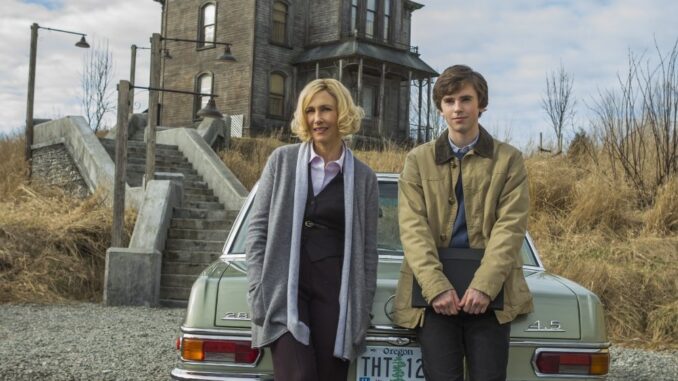
When Bates Motel first premiered in 2013, few could have predicted how profoundly Freddie Highmore would redefine one of cinema’s most infamous characters. As Norman Bates — the psychologically tormented young man destined to become the chilling killer from Alfred Hitchcock’s Psycho — Highmore delivered a haunting, humanized performance that remains one of television’s most celebrated transformations.
Before Bates Motel, Highmore was best known for his roles in films like Finding Neverland and Charlie and the Chocolate Factory, where he embodied innocence and charm. But stepping into the dark, twisted world of White Pine Bay required a completely different kind of artistry. Over five seasons (2013–2017), Highmore transformed Norman into a complex portrait of vulnerability, obsession, and madness — balancing sympathy and terror with remarkable precision.
At the heart of Bates Motel was Norman’s relationship with his mother, Norma Bates, portrayed by the phenomenal Vera Farmiga. The chemistry between Highmore and Farmiga became the emotional backbone of the series. Their mother-son dynamic — loving, suffocating, and ultimately tragic — drew viewers into a psychological web that explored identity, control, and the fragile boundary between love and destruction.
Highmore’s portrayal stood out for its depth and subtlety. He avoided turning Norman into a simple villain, instead crafting a young man trapped within his own unraveling mind. His performance captured the innocence of a boy desperate for love, juxtaposed with the chilling descent into the “Mother” persona that would define his fate. Critics praised Highmore’s ability to bring empathy to horror — a rare feat in the genre.
Throughout Bates Motel, Highmore showcased extraordinary emotional range. From Norman’s tender moments with Norma to his terrifying breakdowns, he displayed an actor’s mastery of restraint and raw vulnerability. His meticulous approach to the role earned him nominations for Critics’ Choice Television Awards and widespread acclaim for making Norman both relatable and terrifyingly unpredictable.
Behind the scenes, Highmore also contributed creatively to the series, writing and directing episodes in later seasons — a testament to his deep understanding of the story and its psychological layers. His direction maintained the show’s eerie tone while emphasizing its emotional intensity.
By the time Bates Motel ended in 2017, Freddie Highmore had not only proven himself as one of his generation’s finest actors but also redefined Norman Bates for a new era. His performance remains a benchmark in television storytelling — a chilling yet heartbreaking exploration of mental illness, dependency, and identity.
